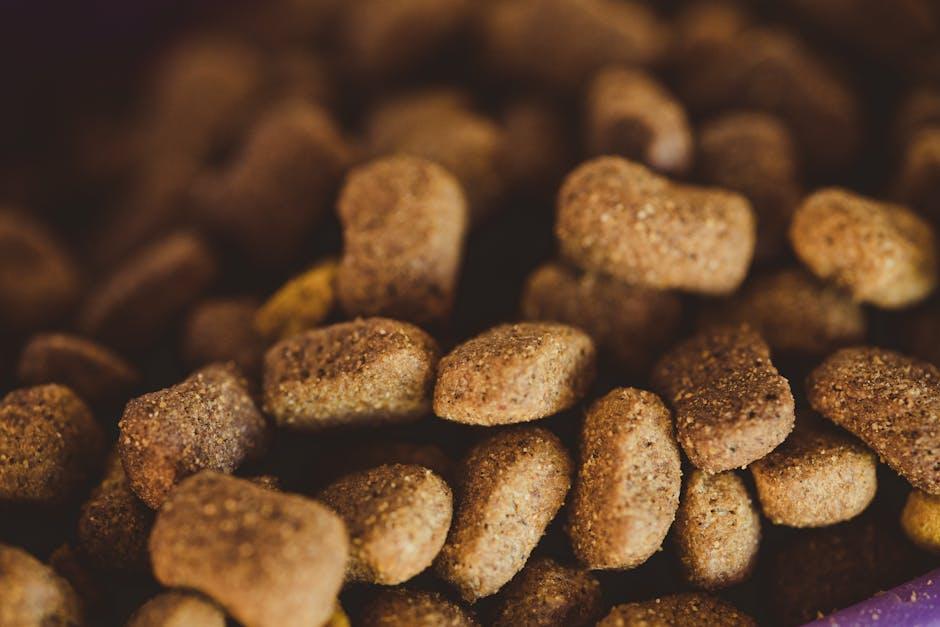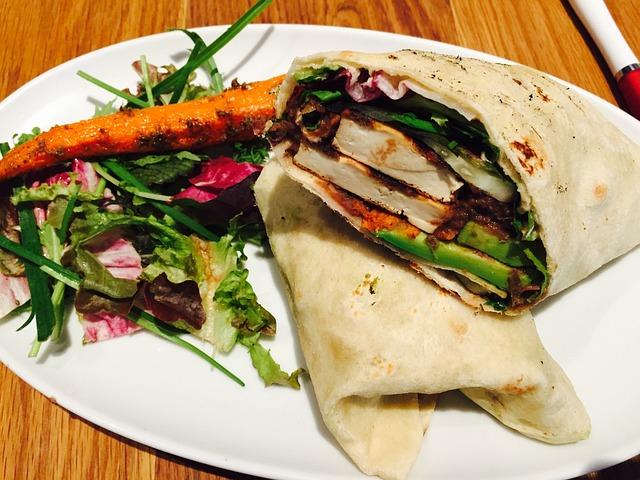When it comes to our beloved canine companions, ensuring they lead a healthy and vibrant life is a top priority for every pet owner. Just like us, dogs thrive on a balanced diet that meets their nutritional needs, supporting everything from their boundless energy to the shine in their coats. But what exactly constitutes a balanced diet for dogs? With a myriad of options and opinions available, it can be challenging to discern the best path for your furry friend. In this article, we will explore the essential components of a well-rounded canine diet, offering insights and guidance to help you make informed decisions. Whether you have a playful puppy or a wise old friend, understanding their dietary needs is key to fostering their well-being and happiness. Let’s embark on this journey to discover how you can nurture your dog’s health with the right balance of nutrition, love, and care.
Understanding Nutritional Needs for Your Furry Friend
Crafting a nutritious meal plan for your canine companion is essential for their health and happiness. A well-rounded diet for dogs should include a balance of proteins, carbohydrates, fats, vitamins, and minerals. Proteins are vital for muscle development and repair, while carbohydrates provide energy. Healthy fats are necessary for a shiny coat and cognitive function. It’s important to incorporate a variety of sources for these nutrients to ensure your dog receives all the essential amino acids and fatty acids they need.
- Proteins: Consider lean meats such as chicken, turkey, or fish. Plant-based options like lentils and peas can also be included for variety.
- Carbohydrates: Brown rice, sweet potatoes, and oats are excellent choices that provide sustained energy.
- Fats: Omega-3 and Omega-6 fatty acids, found in fish oil and flaxseed, are beneficial for skin and coat health.
- Vitamins and Minerals: Incorporate vegetables like carrots, spinach, and broccoli for essential nutrients. Supplements can be used if recommended by your vet.
Remember, every dog is unique, so it’s important to tailor their diet to their age, size, and activity level. Consulting with a veterinarian can help you fine-tune their meal plan to meet specific health needs. With the right balance, you can ensure your furry friend stays vibrant and full of life.
Choosing the Right Proteins and Fats for Optimal Health
In crafting a nutritious diet for your furry companion, it’s crucial to pay attention to the quality and source of proteins and fats. Proteins are the building blocks of your dog’s body, vital for growth, muscle development, and immune function. Opt for high-quality animal proteins such as:
- Lean meats like chicken and turkey
- Fish, which is also rich in omega-3 fatty acids
- Eggs, an excellent source of digestible protein
Equally important are healthy fats, which provide energy and support skin and coat health. Consider incorporating:
- Fish oil, for its anti-inflammatory properties
- Flaxseed oil, a plant-based source of omega-3s
- Chicken fat, which is both tasty and nutritious
Balancing these components not only ensures optimal health but also contributes to a shiny coat, robust energy levels, and overall well-being for your canine friend.

Incorporating Essential Vitamins and Minerals into Their Diet
Ensuring your furry friend gets all the essential vitamins and minerals is crucial for their overall health and well-being. Dogs, much like humans, require a variety of nutrients to support their bodily functions. Here’s how you can make sure they get what they need:
- Vitamin A: Crucial for vision, immune function, and skin health. Include foods like carrots and sweet potatoes, but ensure they’re cooked and served in moderation.
- Vitamin D: Supports bone health by regulating calcium and phosphorus. Fish oils or fortified dog foods can be excellent sources.
- Vitamin E: An antioxidant that protects cells from damage. Nuts, seeds, and leafy greens are good sources, but remember to check for dog-safe options.
- Calcium: Essential for strong bones and teeth. Dairy products can be included, but always in dog-friendly portions.
- Iron: Vital for red blood cell production. Lean meats and liver can be incorporated into their diet to boost iron intake.
By diversifying your dog’s meals with these nutrient-rich foods, you can help maintain their energy levels, promote a healthy coat, and support their immune system. Remember, balance is key, and it’s always a good idea to consult with your veterinarian to tailor the perfect diet plan for your pup’s specific needs.

Crafting a Meal Plan Tailored to Your Dogs Unique Lifestyle
When it comes to creating a meal plan for your furry friend, it’s essential to consider their unique lifestyle and nutritional needs. Every dog is different, and factors such as age, breed, activity level, and health conditions can significantly impact their dietary requirements. A well-balanced diet for dogs typically includes a mix of proteins, carbohydrates, fats, vitamins, and minerals. Proteins are vital for muscle development and repair, while carbohydrates provide energy. Fats are essential for a healthy coat and skin, and a well-functioning immune system. Don’t forget about vitamins and minerals, which play crucial roles in various bodily functions.
To craft a personalized meal plan, keep in mind the following:
- Assess your dog’s activity level: Active dogs may require higher calorie intake compared to more sedentary ones.
- Consider age and size: Puppies, adults, and senior dogs have different nutritional needs, and larger breeds might need more food than smaller ones.
- Evaluate health conditions: Some dogs may have allergies or medical conditions that require special dietary considerations.
- Consult with a veterinarian: It’s always a good idea to discuss your dog’s diet with a vet to ensure they’re getting all the necessary nutrients.
By tailoring your dog’s diet to their specific needs, you can help ensure they lead a healthy, happy life.

